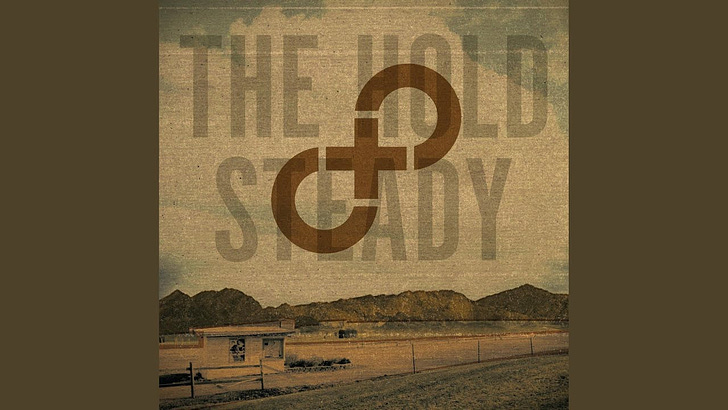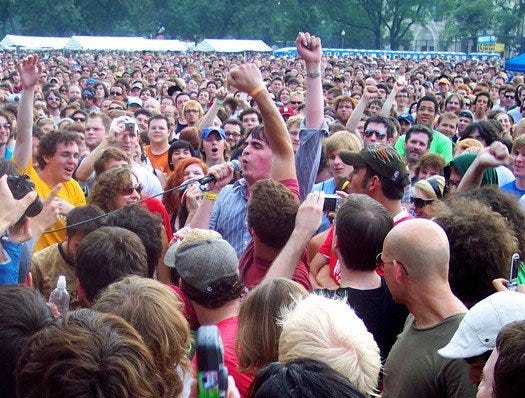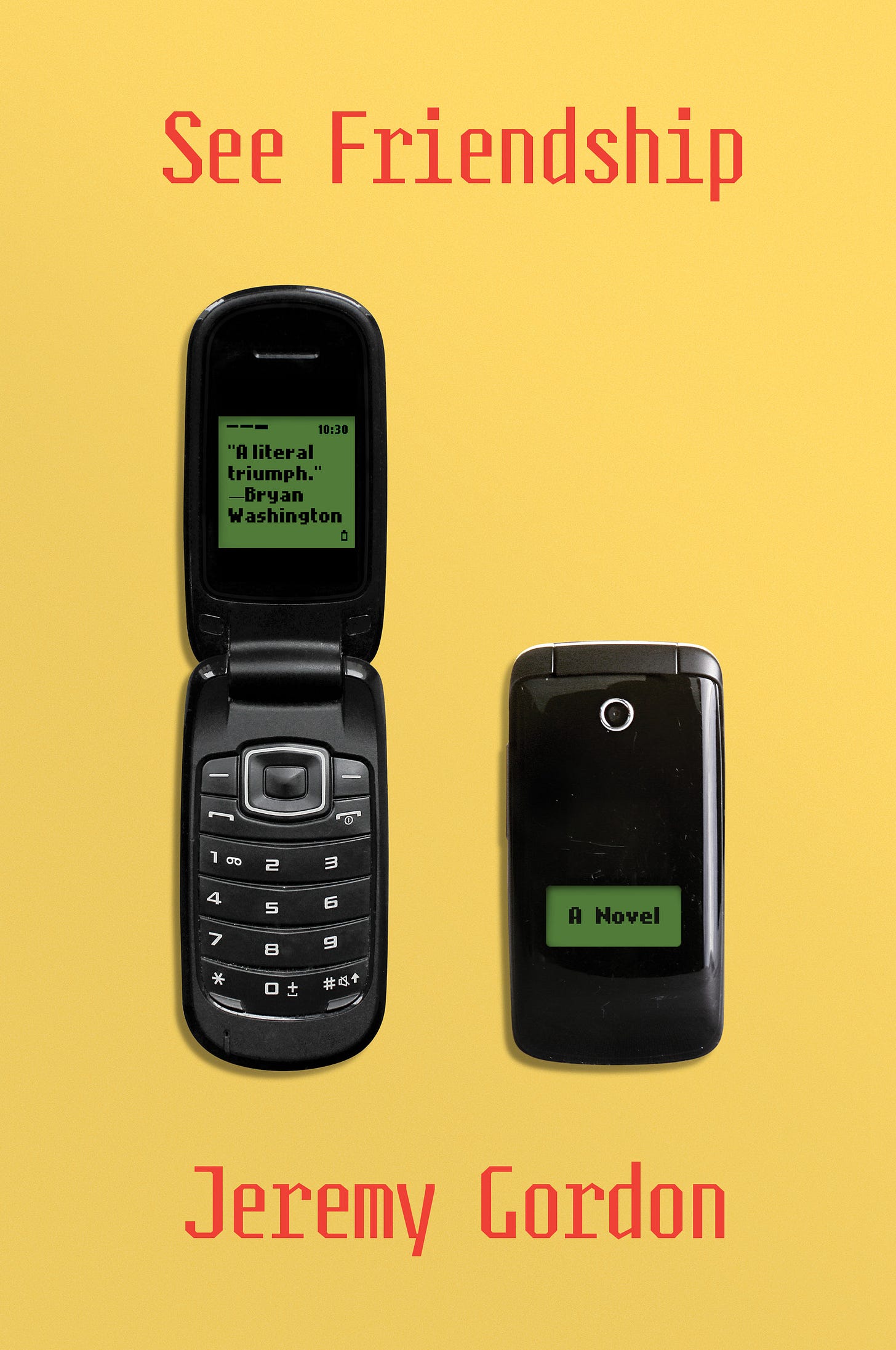Not sentimental, no
Subjects discussed: The shuttering of the Pitchfork Music Festival, indie music as a concept and lifestyle, millennial nostalgia
On Sunday, I was working on a piece of writing that required me to think about my undergrad years, and in an attempt to recreate the mood I went to Apple Music and searched for the Pitchfork best-of lists from 2008-10. Some of these songs have held up in unanticipated ways: While I was never a big Wavves guy, I found myself walloped by the blown-out angst of “No Hope Kids,” as well as Fleet Foxes’ blissful and sacred “White Winter Hymnal.” (Maybe only surprising because I still have no desire to ever go camping.) On the flip side, some of the songs I used to enjoy now really sucked, to put it bluntly: Matt and Kim’s “Daylight,” Dirty Projectors’ “Stillness Is the Move,” Jay-Z’s “Empire State of Mind.” Every piece of culture has its time and place, and sometimes it’s fine to move on.
Then, in a dark little Monday afternoon synchronicity, Pitchfork announced it would be shuttering its flagship Pitchfork Music Festival, which ran for 19 installments in Chicago from 2006 to 2024—five presidential terms, the only worthwhile unit of time. The news was a bit surprising, especially to my Chicago friends, who had come to regard the festival as one of the city’s premier cultural offerings—a slice of the contemporary music most worth paying attention to, accessible for a modest ticket price and located within a walkable venue. (Union Park, where the event took place, can be walked end-to-end in less than 10 minutes, maybe less; as festivals go, that’s very tiny.) I had been told the festival was getting more difficult to book, and the publication being folded into GQ earlier this year would seemingly indicate everything was on the table, but still—tough news.
I went to every single one of these festivals—first as a fan, then as as a freelancer who covered the event, then as a staffer at Pitchfork, then as an ex-employee-turned-friend-of-the-pod. I attended with four women I was dating, one of whom I would marry; I drank 50,000 beers with 50,000 friends; I still have, in my phone contacts, the numbers of at least three strangers who asked if I could buy weed for them, after sharing my joints in the pit. All of which is to say, I have a lot of memories associated with that patch of dirt and grass in the West Loop.
To quote a former president, let me be clear: I would not have traveled every year to attend just any music festival, even if for free and to see my friends, but I always returned to Pitchfork because it was a great excuse to see my mom. Live music with a side of filial piety—not a bad motivation to hop on a plane. Yet I’d also felt my enthusiasm wane in recent years, a function of my age (my feet hurt, standing around waiting for bands) and the booking evolving beyond my personal taste. That chunk of time—19 years, from the birth of a child to their sophomore year of college—saw a tremendous restructuring of “indie music,” a genre that scored my formative years, and with it Pitchfork’s editorial purview.
In the wake of this year’s layoffs, some commenters declared that the site had become too pop-oriented in recent years, an appraisal that never scanned with me. The job of a critic may be to declare one thing better than the other thing, but keeping abreast of what exists in front of and around them is also part of the professional territory. Like Rolling Stone and Spin before them, Pitchfork’s rise coincided with sudden explosion of a particular youth music movement—in the ‘00s, the revival of the art rock underground into something more digitally agile, as sleek and sexy as an American Apparel photo shoot. All that was not simply the preference of a bunch of music nerds. Pitchfork created some trends, but mostly they excelled at putting their finger on the pulse, and identifying what was already happening. Then music got different, as it always does, and so did the site. Anyways, there was also a lot of pop music on those 2008-2010 lists I perused, and “Single Ladies” holds up much better than a lot of the picks—I promise.
The difference being that from 2008-2010—and many other years of the site’s existence, but I’m choosing these because it’s what I was just listening to—Pitchfork’s dominion was much smaller. As a small-staffed, independently-owned website, they were freer to chase the exact lane of music they cared about—which tended to be a mix of “art rock underground” + “forward-thinking rap albums” + “inventive pop singles” that interested a specific type of music nerd. Back then, the easy joke was that this listener was just a white person, but it wasn’t totally that simple; having lived through it, I promise you that people of color also enjoyed both Grizzly Bear and Kanye West. But it’s true that in growing bigger than ever, as a result of its corporate ownership and the general mandate of most websites to grow bigger than ever, the modern Pitchfork reader is probably a bit more difficult to reduce to a specific identity. (Walking around the festival in recent years, you really got this impression.) The site casts a much wider net, in terms of what it pays attention to—great if you want to hear a lot of great music, and more difficult to build your personality around.
Unlike the critics who made up the staff, not every Pitchfork reader was chasing the future, or a representative snapshot of everything great about music right now; some of them just really liked bands that sounded like Radiohead. And as people grow older, their taste is more likely to calcify into “stuff that sounds like stuff I already like,” if not just “the bands I already like, even if they’re making their least-interesting work ever.” I’m certainly no exception; I keep up with new music because it interests and excites me, yet sometimes I just want to sit back and enjoy the hits. I’m not immune to nostalgia, but nostalgia is not a sustainable vision for a contemporary music publication, which by definition must always have an eye on what’s coming next.
As the site has grappled with what that means, in recent years, so has the festival’s booking reflected this dilemma—right as the festival market has gotten more crowded, and more expensive. In Chicago, Pitchfork doesn’t just contend with Lollapalooza; Riot Fest has also lapped it financially, given that it increasingly books bands that might have headlined Pitchfork in the past. (In 2024, it was Pavement, St. Vincent, and Spoon.) All this leads to weaker lineups and diminished ticket sales, and now the festival’s cancellation. I’m speaking loosely, without any inside information, but the crowds were notably smaller at this year’s installment, aka “the one where Black Pumas headlined.” Let’s also assume “the mega-hot ticket that makes a ton of money—and we predict it’s going to keep making tons of money” is not the first item on the chopping block, when costs are being cut. We can do math, after all.

Those are all my “serious thoughts.” It’s funny to have this much to say about Pitchfork, but that’s what happens when you spent 19 years right next to something. As regular me, it’s all kind of a bummer. Another thing we don’t get to enjoy anymore. I will miss the excuse to fly home in the summer, see friends new and old, and enjoy the sounds of scenic Chicago. Skim some of these lineups—nearly every year was an unbelievable collision of interesting and worthwhile music. No other U.S. festival would’ve had, as its three-day headliners in the same year, Beck, Neutral Milk Hotel and Kendrick Lamar—but Pitchfork did. No other U.S. festival would’ve given a headlining spot to Sonic Youth playing Daydream Nation, or made Robyn feel like the biggest pop star of all-time when she closed out the festival a few years ago—but Pitchfork did. (I’m specifying the U.S. because they do crazy stuff abroad.)
The festival was great because it allowed the site’s readers to get off the internet, and experience something together in the sunny outdoors. A reminder that not everything is just bickering about your taste online. It was the type of place where you’d overhear a bunch of teenagers debating the finer points of the Guided by Voices discography; where you’d start counting Sonic Youth t-shirts and hit the three-dozen mark before sundown; where you’d take in Slint’s “Good Morning, Captain” among thousands of people (more than the number of people who bought Spiderland when it came out). Sorry to say, but I enjoyed this.
I debated including this next part because there’s actually a similar sequence in my novel (spoilers) where characters are just listing “things that happened” and it’s meant to be sweet but a little pointless in the way all freeform reminiscing can be, to a person who never participated—but then I remembered, “it’s my blog, which I charge $0 for.” So I’m going to be garishly sentimental for a single minute and mention some random things I’m remembering, as I think about all this:
the time Wavves threw his Bulls cap into the crowd, and I met the guy who got the hat
the time Stephen Malkmus, playing a solo set, said something that sounded a lot like “Hey Jeremy” and all my friends turned to look at me, and though we were stone-cold sober it sure didn’t feel like it!
the time I was too deep in the crowd for the Hold Steady to leave but I really had to pee, so a group of new friends (the ones I’d shared my weed with) formed a circle around me, allowing me to urinate into an empty bottle I’d kept in my bag, and when the music started I rolled the bottle as far as I could into the crowd—the cap was on, I promise
the time my friend Jeremy and I witnessed a polycule making out and singing along during Brian Wilson—weirdly horny vibe for “I Just Wasn’t Made For These Times”
the time my mom and her boyfriend, who were in attendance, really loved a pre-Brat Charli XCX—that was another nice thing, seeing older attendees ride the wave of all that was happening now
the time I texted my ex to see if she was going to see Belle and Sebastian, and she got really upset at me for even thinking she might be a fan—to which I couldn’t say much, because I get it, but also I was going to see Belle and Sebastian (great band!)
the time my friend Matthew rapped along very loudly and happily to A$AP Ferg’s “Dump Dump,” which is an awfully vulgar song
the time my friend Jeremy accidentally locked eyes with a woman as they were both singing along to “The King of Carrot Flowers,” and realized she was 1) in the arms of her boyfriend 2) probably a college student, so for a split-second we thought it would be messed up but sort of really funny if my 30-something friend got his ass kicked by a 19-year-old jock
the time I was so terribly hungover while listening to a just-ok Japandroids set, and thought clearly to myself: “My life must change” (after this is when my enthusiasm began to wane)
the time it was so hot out, pushing 100 degrees easily with high humidity, and as the first set of the day Dirty Beaches played the most atonal, unpleasant noise possible—it sounded FANTASTIC!
the time, in another hot year, that Cold Cave played in head-to-toe black leather—true commitment to one’s aesthetic
the time I saw Deerhunter in line at Taco Bell… Deerhunter is still one of my favorite bands ever, so for a teenager this was truly a “stars, just like us” moment
the time I was befriended by a Russian woman my age, before Godspeed You! Black Emperor, because—I quote— “you seem really sad” (it was just the way I looked)
the time that the Isley Brothers subjected the crowd to a lengthy mid-song religious sermon, and nobody really knew what to do with this because the Pitchfork Music Festival is probably Well-Meaning Agnostic Central
Anyways. Thank you for indulging that—again, I couldn’t resist because it’s my blog. More will come to me, I’m sure. Time moves on, and it’s not lost on me that (sorry) this news arrives barely a week after the door slams shut on the hopey-changey vision of the multicultural future—for now, at least. That’s where my mind is, because the first heyday of Pitchfork was—to me—the early Obama years, a period we are now very far from, both literally and politically and spiritually and every which way. I suppose you could develop a more pointed critique about how these two phenomena, Pitchfork and Obama, are not unrelated, but that is not for me to make—only think about, when pondering the ways in which I’ve been dumbly naive about everything that was coming next.
So I’m trying not to wallow in my nostalgia, because that is a useless way to think about the future. Metaphysically speaking, things that are dead cannot be brought back to life. But it was a good time. Not just for me, but for thousands and thousands of other people. Here’s a photo of Art Brut playing in 2006, to what I assume is one of the biggest crowds they ever had. (Remember Art Brut?) I am somewhere in the upper-left quadrant, trying to get a glimpse alongside many other nerds just like me.
As always
Please preorder my novel, See Friendship, which I believe is good and worthwhile.
Here are some nice things that people have said about it, recently (I’m copy-pasting from the listing):
"See Friendship is a lot like the internet—a dishy, highly addictive portal into the human psyche. Jeremy Gordon has written a tender debut about the enduring pull of adolescent friendships, how we grieve in the digital age, and the ever-shifting role of the writer in society. If America truly is 'on its way out,' as a barfly in the novel’s opening argues, I’m grateful we have Gordon to make sense of the wreckage." — Ruth Madievsky, author of All-Night Pharmacy
"Both intimately confessional and bitingly observant, See Friendship is a propulsive unsolved mystery of a novel that investigates the unknowability of the lives we lead in the 21st century. An electrifying debut." — Elaine Hsieh Chou, author of Disorientation and Where Are You Really From
"A smart, biting meditation on grief and memory. At once a love story of friendship and a picaresque page-turner for the podcast generation, the novel is refreshingly humane in its portrait of the ongoing mystery of loss. See Friendship asks a confounding but inescapable question: Can we ever really know those we hold dear?" — Isle McElroy, author of People Collide
"Jeremy Gordon’s writing is funny, poignant, and so, so alive. He’s written a novel that’s sophisticated in its questions—about friendship, memory, and our obligations to the past—but wise enough not to provide easy answers." — Erin Somers, author of Stay Up With Hugo Best







2008-10, maybe THE best years for indie rock (well, for me) - the Hold Steady being especially brilliant, but those first songs/bands you mention - Fleet Foxes ‘White Winter Hymnal’ and Wavves ‘No Hope Kids’ - omfg yeah
never have been to a Pitchfork Music Festival, but have been a loyal reader of Pitchfork, relying on them to point me to great music (and they never failed)
loved this so much.